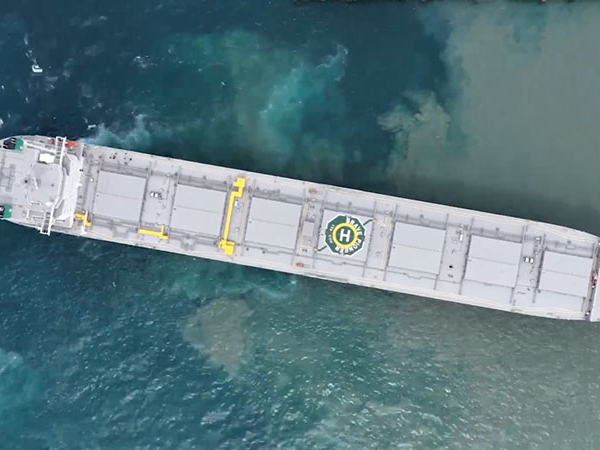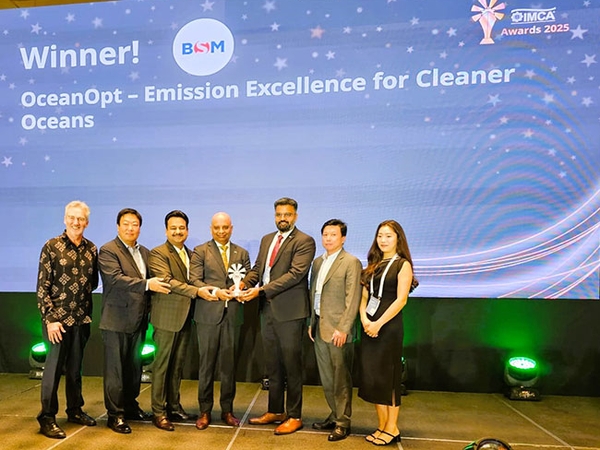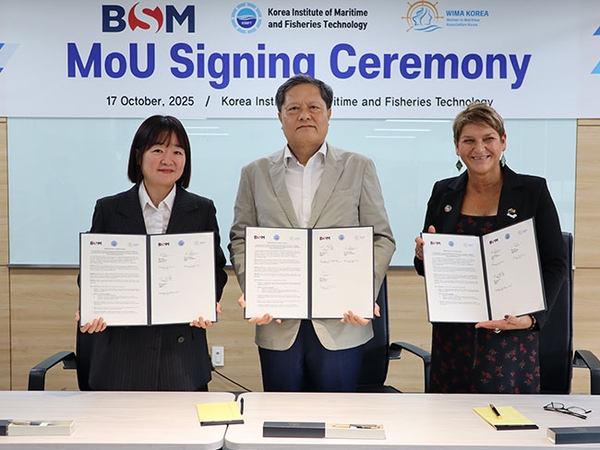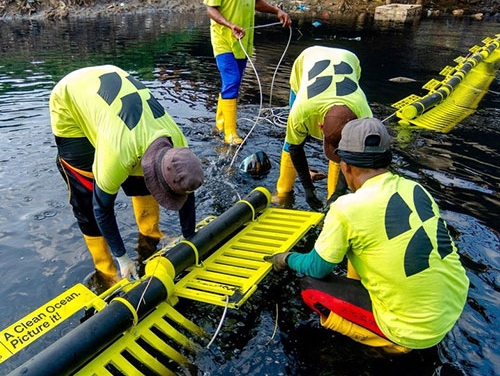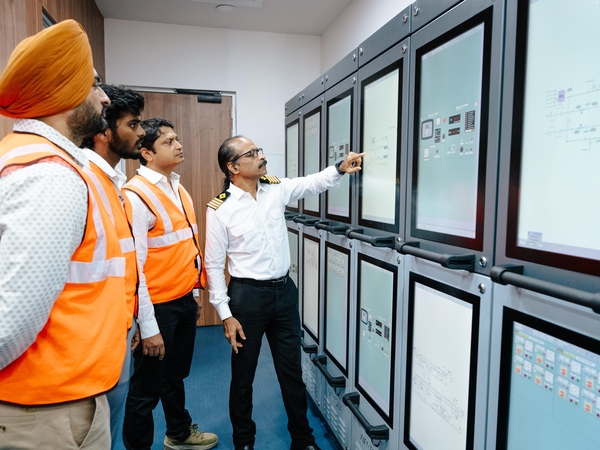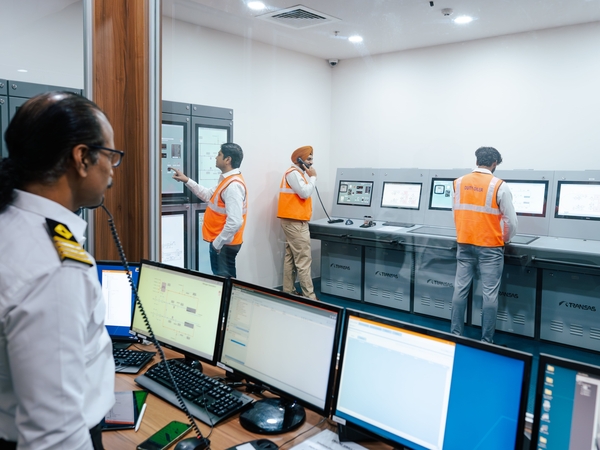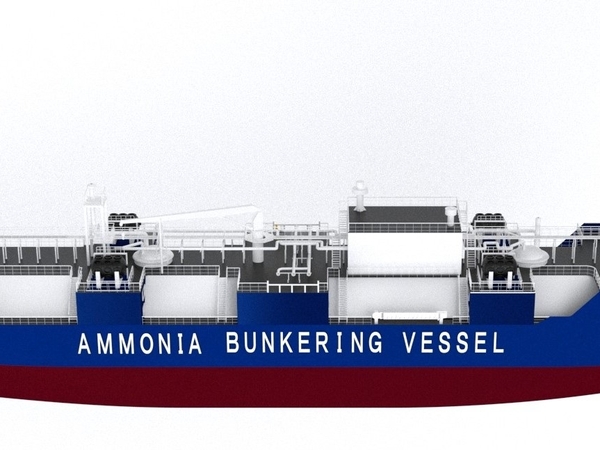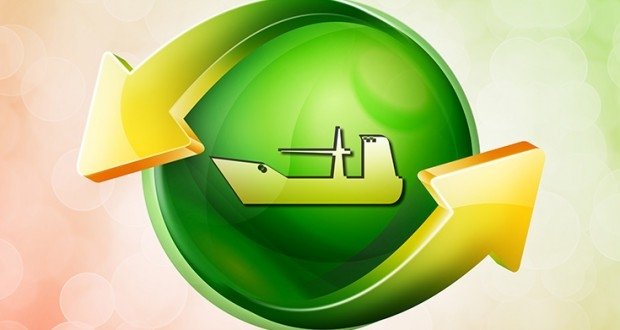
Energy efficiency: far more than just a regulatory requirement, it's a topic that takes centre stage for all responsible ship owners and operators. And it's a topic closely aligned to reputation and, therefore, an operator's commercial standing.
For many ship owners, the quest for energy efficiency has also led to some high-cost decisions – but it doesn't always have to be that way. By taking a creative and integrated approach, BSM is delivering best-practice projects which do not necessarily need to be capital-intensive. Those projects range from installing LED lighting onboard vessels to comprehensive training of personnel at all levels.
With lower fuel prices, it might be tempting to consider energy efficiency as a lower priority. However, Prakhar Singh, Corporate Fleet Manager (Energy Efficiency) said: "The fuel price may have been dropping but environmental legislation becomes ever stricter. Ships are forced to use more distillate fuels in emission control areas – and those fuels are very expensive. There is still a heavy emphasis on energy efficiency because vessels' carbon footprint, SOX and NOX emissions are being monitored very closely by governments.
"And everything is being monitored internationally. RightShip, the ship vetting website favoured by potential charterers and customers, gives ratings for the environmental impact of a vessel; if you are not using good quality fuel or do not have enough energy efficiency measures in place, your rating drops and this has an impact on your commercial standing.
"I am responsible for maintaining and improving our ratings on RightShip. Almost every ship is rated on this site; it is one of the most respected ratings agencies in the world and very important for us."
Information Technology plays an important role in BSM's wide range of measures for achieving energy efficiency. The Voyage Module software, which captures and analyses a ship's performance to highlight areas for improvement, has been installed on 46 BSM vessels so far – "and we intend to cover the entire fleet", said Prakhar. "Voyage Module not only reduces paperwork but also gives us the tools to analyse voyage planning, engine performance and weather impact. It is a very use-friendly system."
On the hardware side, low-cost solutions implemented by BSM include the installation of LED lighting, torsion meters and VFD (variable frequency drives).
The return on investment (ROI) for LED lighting is less than a year and installation can be carried out while a ship is in operation, pointed out Prakhar. "We have worked with a lot of vendors across the globe to keep LED costs low. The other investment that is delivering very well is VFDs. The start-up of some onboard equipment can use eight to nine times the level of normal energy required for that equipment and sometimes you even need to run a second generator to allow for this. Installing VFDs can save up to 40% of energy and, again, ROI is less than a year."
In line with regulatory requirements, BSM has a comprehensive Ship Energy Efficiency Management Plan (SEEMP) in place for each vessel in the fleet. Each SEEMP is ship-specific and must be audited every year and critical to the programme is BSM's comprehensive Monitoring, Reporting, Review (MRV) procedure.
"Our MRV process is very important," said Prakhar. "It is voluntary but we take it very seriously. We have 350 ships under technical management and 600 in total management and we need to have people qualified internally to take care of it. So we have trained all of our superintendents – 180 in total, technical and marine – as ISO 15001 auditors, to audit ships' SEEMPs. This training took almost 18 months. The MRV process is now in its third year. All of this has required a lot of training and investment. But it clearly gives us a competitive edge in the market."
In 2014, MRV became the full focus of Prakhar's team. "So now I monitor all the vessels very carefully to identify opportunities for further improvement in addition to analysing market, economic and environmental related developments"
BSM has also introduced Best Management Practices for crews – all are attending special training courses on environmental efficiency onboard. "Education and training are vital," he said. "It helps so much."
And the energy efficiency message, it has to be said, is spreading. "The seafarers are very receptive to the concept – for example, switching off lights. We have heard examples of our seafarers installing VFDs and LED lighting at home, and comparing experiences."
As well as its own energy efficiency measures, BSM works closely with its charterers, many of whom have their own fuel saving programmes. "We make sure we train the Masters so they are familiar with the charterer's or operator's software," said Prakhar. Pro-activity is the key.
Meanwhile, BSM continues to explore other opportunities such as hull cleaning to minimise resistance and increase fuel efficiency, fine-tuning and eliminating leakages on main and auxiliary engines, weather routing, slow steaming, and trim and ballast optimisation.
And looking ahead? Two things are certain, said Prakhar: implementation of the global 0.5% sulphur cap on marine fuel and ever more stringent environmental requirements across the board.
"By 2020, the sulphur content of fuel across the globe will be limited, along with huge reductions required in SOX, NOX, CO2 and particulates. There is no choice; a ship owner must make the investments required. And with fuel costs at a low, now is the right time to make those investments."
